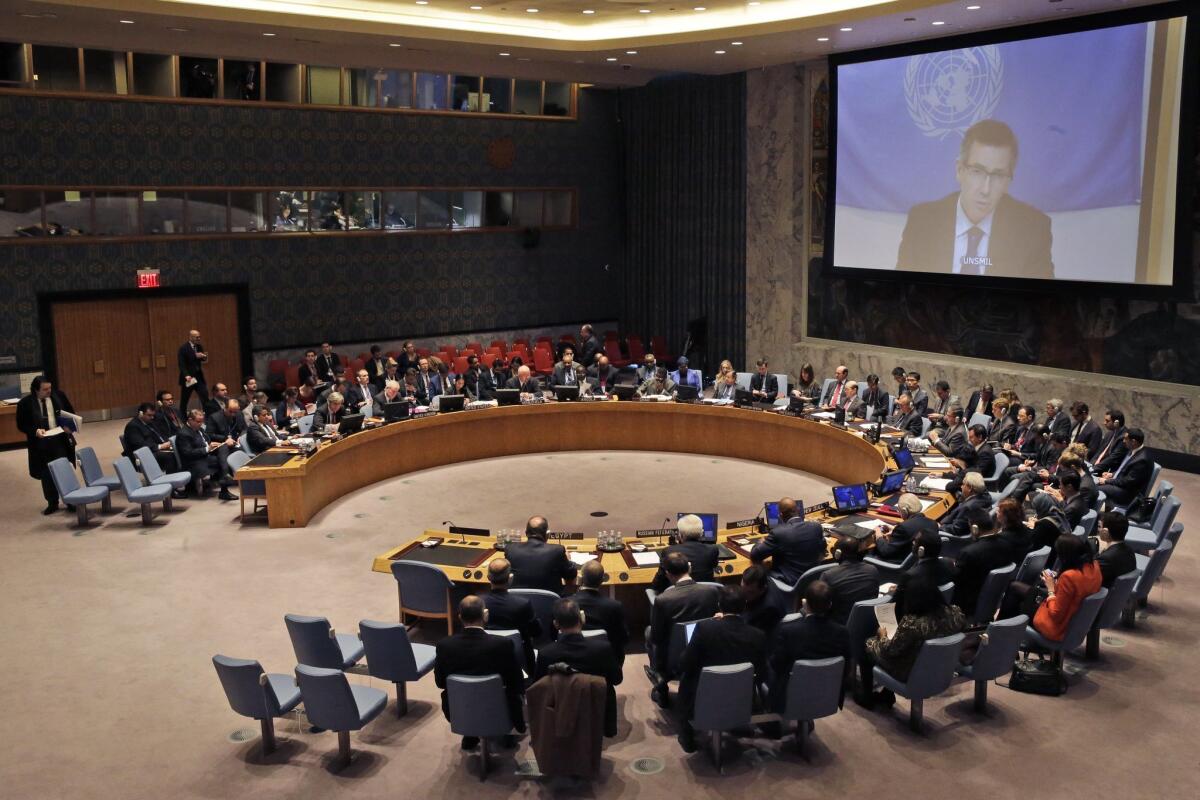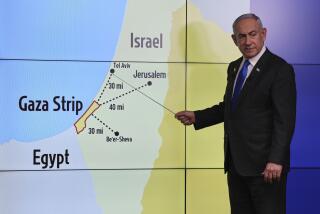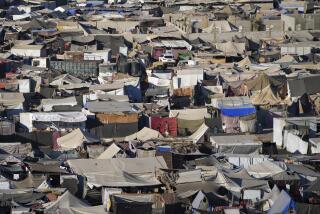Facing Islamic State threat, Arab leaders call for lifting Libya arms sanctions

Arab leaders called Wednesday on the U.N. Security Council to lift arms sanctions against Libya to help its army fight the Islamic State and warned that the militants’ beheading of Egyptian Christians threatened to expand Libya’s civil war into a regional military conflict.
“The situation in my country is threatening the countries of the region in Africa, and it is also threatening Europe,” Libyan Foreign Minister Mohamed Dairi said during an emergency meeting of the council. “Libya needs a decisive stance from the international community to help us build our national arms capacity.”
Egypt, which on Monday launched airstrikes against what it called Islamic State targets in Libya, also made clear it was not backing away from the idea of more military action, despite U.N. and Western calls for a political solution.
Egyptian Foreign Minister Sameh Shoukry said his country supported ongoing U.N.-sponsored talks to form a government of national unity in Libya. But he added, “It is not an alternative to militarily confronting terrorism.”
“We will not hesitate in confronting the terrorism threat,” Shoukry said.
The U.N. meeting was called in response to escalating tensions following a video that surfaced Sunday showing the beheading of 21 Coptic Christians – 20 from Egypt and one from another African country – on a Libyan beach. Hundreds of thousands of Egyptians cross the 700-mile Egypt-Libya frontier to work as laborers at higher wages than they get at home.
A day after the Egyptian bombings, the United States, Italy, Spain, France, Britain and Germany released a statement urging a political resolution to the violence in Libya, which has been engulfed in factional fighting since the overthrow of Moamar Kadafi in 2011. U.N. sanctions were imposed the same year to prevent the flow of arms to military groups.
“The United Nations-led process to establish a national unity government provides the best hope for Libyans to address the terrorist threat and to confront the violence and instability that impedes Libya’s political transition and development,” the statement said.
It did not mention the Egyptian airstrikes but made clear it saw politics, not military action, as the best way forward.
Shoukry echoed Libya’s call for a lifting of the 2011 sanctions. He also called for a naval blockade to prevent weapons from reaching Libyan ports seized by militants. He did not call for an international military coalition to join forces against the Islamic State in Libya as has been done in Iraq and Syria, but he did not rule out more action by Egypt’s military.
“Egypt is seeking the support of the international community by all means to eradicate terrorism in Libya,” he said. “What Egypt will do or will not do is a matter of coordination and consultation with the Libyan government.”
In Egypt, President Abdel Fattah Sisi visited troops along the Egypt-Libya border and vowed to fight “terrorist groups.”
Monday’s airstrikes marked Egypt’s first declared intervention in the fighting that erupted in Libya after Kadafi’s ouster.
During Wednesday’s meeting, Bernardino Leon, head of the United Nations’ support mission in Libya, repeated calls for a political solution to the country’s problems.
The United Nations hosted two rounds of talks in Geneva in January aimed at building a government of national unity in Libya. Leon, speaking by video from Tunisia, said he was hopeful a political agreement could be reached soon.
“The differences among the parties are not insurmountable,” he said.
More to Read
Sign up for Essential California
The most important California stories and recommendations in your inbox every morning.
You may occasionally receive promotional content from the Los Angeles Times.











